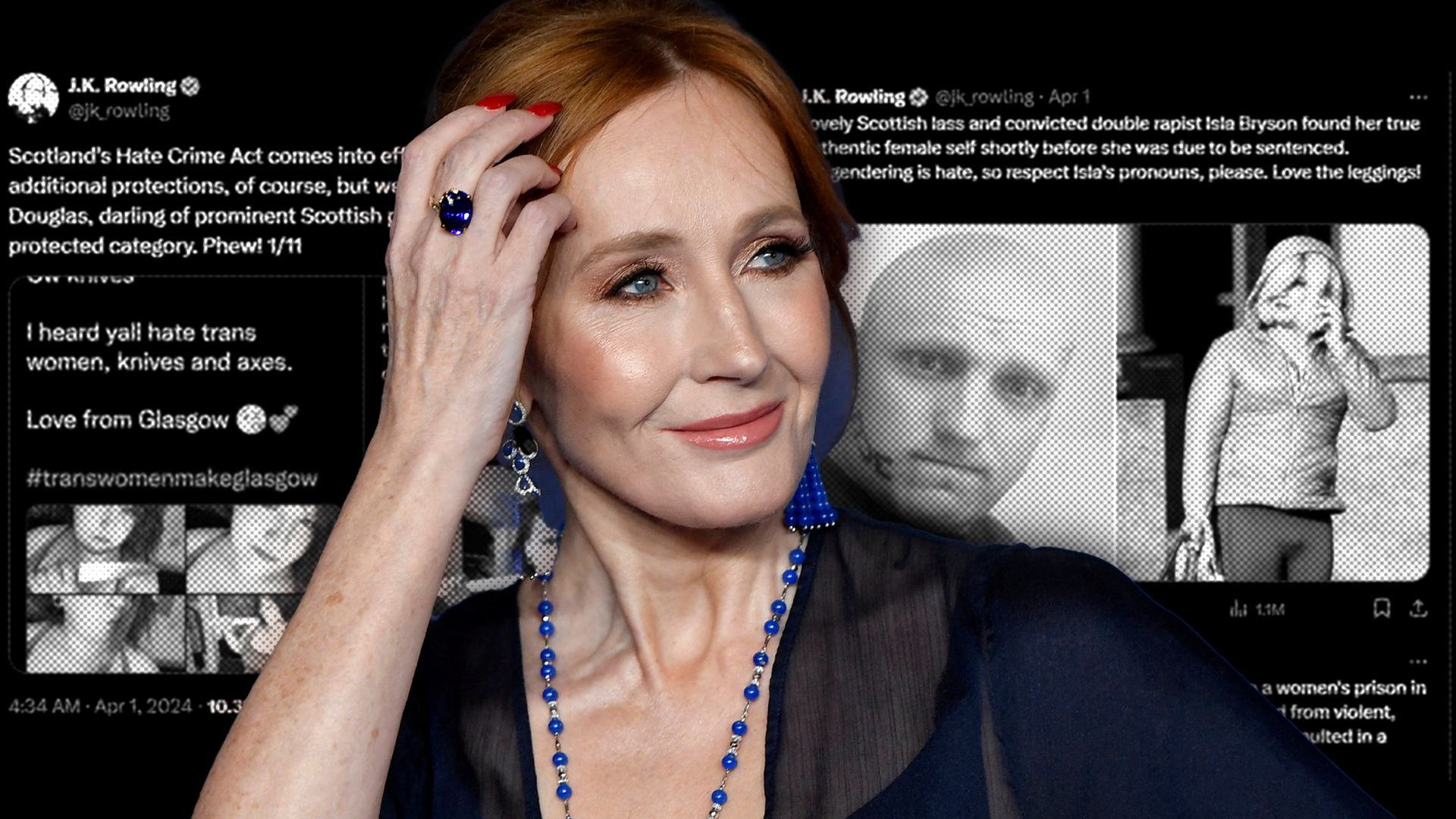Police Scotland have refused to charge JK Rowling with any offense under the nation’s new hate crime law, despite having received complaints about the Harry Potter author from trans activists.
Scotland’s new Hate Crime and Public Order Act went into effect on Monday, creating a new offense of “stirring up hatred against protected characteristics, including age, disability, religion, sexual orientation and gender identity.”
In a thread posted to X on Monday, Rowling compiled a number of trans-identified men who had made misogynistic comments, committed sex offenses, or otherwise admitted to sexually perverted behavior. The thread was intended to be provocative, with the beloved author both challenging the new hate crime laws and calling attention to gender ideology’s impact on women.
Scotland's Hate Crime Act comes into effect today. Women gain no additional protections, of course, but well-known trans activist Beth Douglas, darling of prominent Scottish politicians, falls within a protected category. Phew! 1/11 pic.twitter.com/gCKGwdjr5m
— J.K. Rowling (@jk_rowling) April 1, 2024
“In passing the Scottish Hate Crime Act, Scottish lawmakers seem to have placed higher value on the feelings of men performing their idea of femaleness, however misogynistically or opportunistically, than on the rights and freedoms of actual women and girls,” she said, concluding her thread.
Rowling argued that the legislation was “wide open to abuse” by trans activists who wished to silence women, adding that it was “impossible to accurately describe or tackle the reality of violence and sexual violence committed against women and girls, or address the current assault on women’s and girls’ rights, unless we are allowed to call a man a man.”
“I’m currently out of the country, but if what I’ve written here qualifies as an offence under the terms of the new act, I look forward to being arrested when I return to the birthplace of the Scottish Enlightenment,” she concluded.
🎉🌼🌸April Fools! 🌸🌼🎉
— J.K. Rowling (@jk_rowling) April 1, 2024
Only kidding. Obviously, the people mentioned in the above tweets aren't women at all, but men, every last one of them.
In passing the Scottish Hate Crime Act, Scottish lawmakers seem to have placed higher value on the feelings of men performing their…
On Tuesday, Police Scotland confirmed that a number of reports had been made about Rowling, but that no action would be taken, a result she celebrated on social media.
“I hope every woman in Scotland who wishes to speak up for the reality and importance of biological sex will be reassured by this announcement, and I trust that all women – irrespective of profile or financial means – will be treated equally under the law,” Rowling posted.
I hope every woman in Scotland who wishes to speak up for the reality and importance of biological sex will be reassured by this announcement, and I trust that all women – irrespective of profile or financial means – will be treated equally under the law.https://t.co/CsgehF2a5d
— J.K. Rowling (@jk_rowling) April 2, 2024
UK Prime Minister Rishi Sunak had refused to comment on Rowling’s post before Police Scotland’s announcement, saying it was not right for him “to comment on police matters, individual matters.” However, he admitted that overall, the UK “should not be criminalizing people saying common sense things about biological sex, clearly that isn’t right,” as the country has “a proud tradition of free speech.”
Rowling’s move was celebrated on social media, with some praising her for “neutering” the hate crime law on the first day of its passage.
“By openly and unambiguously breaking this law – on a massive public platform – on its very first day, she has in effect nullified the law by forcing the authorities in Scotland into a corner where they only have two options, both of which will be this law’s downfall,” user The Heretical Liberal wrote in a lengthy analysis of Rowling’s thread.
“Either they charge Rowling and the resulting massive scrutiny of the law will inevitably result in it’s repeal OR they don’t charge her and the law is in effect utterly nullified.”
It's hard to overstate how important – and strategically brilliant – @jk_rowling's power move was today, a first-move checkmate that effectively
— The Heretical Liberal 🇨🇦🏳️🌈 (@Rob_ThaBuilder) April 2, 2024
neutered Scotland's dangerous new #HateCrimeBill. By openly and unambiguously breaking this law – on a massive public platform – on… https://t.co/dWKhCSERud
As The Publica previously reported, Police Scotland has established authorized third-party centers for those who wish to log hate crimes under the new bill.
Among the community-based centers where citizens can now report hate speech and other hate-motivated incidents in Glasgow are a mosque that invited a cleric so incendiary he was banned from speaking in Pakistan, a salmon farm, and an LGBT sex shop.
Police Scotland also created a campaign featuring the “hate monster,” representing the feelings of “young men aged 18-30” who have “white-male entitlement” and are therefore “likely to commit [a] hate crime.” However, the campaign was removed after public backlash.







